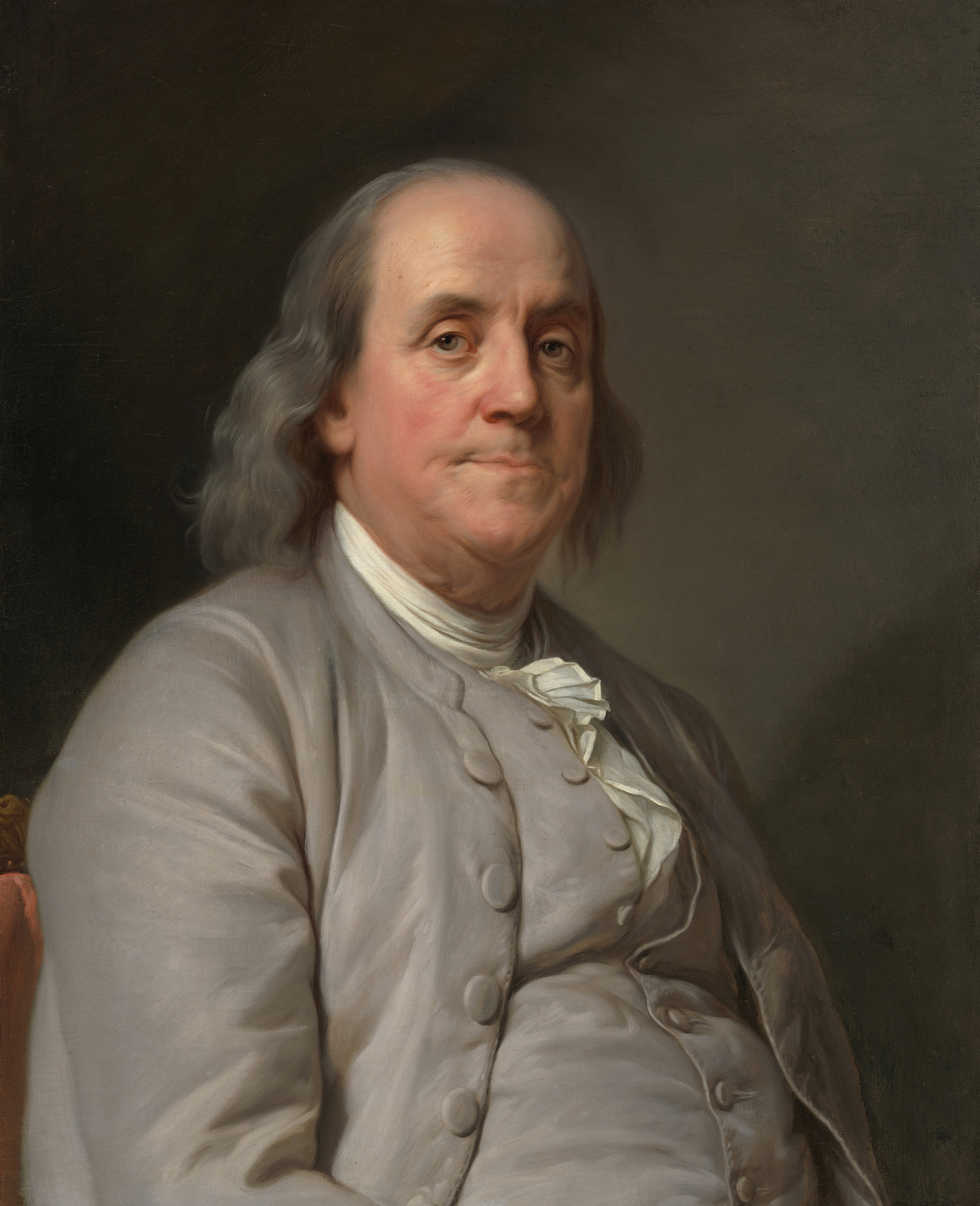Benjamin Franklin

Portrait by Joseph Duplessis, 1778, National Portrait Gallery
Benjamin Franklin is one of those historical figures that need no introduction. Born in Boston on January 17, 1706, Ben is best known as one of our Founding Fathers and a drafter and signer of the Declaration of Independence. A polymath, Franklin has become a cultural icon, and his image on the one hundred dollar bill – known colloquially as Benjamins – is a universal symbol of wealth and prosperity.
My eighth great-grandparents, Peter Folger and Mary Morrill, were Franklin’s maternal grandparents. They came to America from England in 1635 aboard the Abigail. Mary was an indentured servant to Rev. Hugh Peters, and on the way over, Peter fell in love with her, eventually buying out her contract. (Rev. Peters, incidentally, returned to England, where he supported Cromwell; after the Restoration, he was found guilty of high treason and executed). Peter and Mary Folger had nine children, including my seventh great-grandmother, Jerusha, and Abiah, who was Franklin’s mother. Peter Folger is one of the founders of Nantucket, and Mary is immortalized in the following passage from Melville’s Moby Dick:
No good blood in their veins? They have something better than royal blood there. The grandmother of Benjamin Franklin was Mary Morrel; afterwards, by marriage, Mary Folger, one of the old settlers of Nantucket, and the ancestress to a long line of Folgers and harpooneers—all kith and kin to noble Benjamin—this day darting the barbed iron from one side of the world to the other.
Herman Melville, Moby-Dick; or The Whale (New York: Harper & Brothers, 1851), 123 (emphasis in original).
Franklin is also well known for his many famous sayings, including my favorite, “Well done is better than well said.” Poor Richard’s Almanack (1737).
